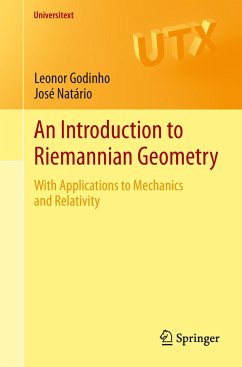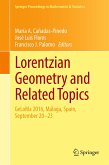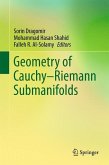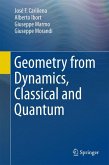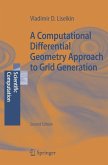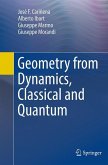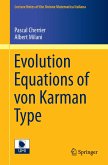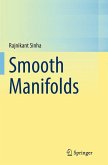Unlike many other texts on differential geometry, this textbook also offers interesting applications to geometric mechanics and general relativity.
The first part is a concise and self-contained introduction to the basics of manifolds, differential forms, metrics and curvature. The second part studies applications to mechanics and relativity including the proofs of the Hawking and Penrose singularity theorems. It can be independently used for one-semester courses in either of these subjects.
The main ideas are illustrated and further developed by numerous examples and over 300 exercises. Detailed solutions are provided for many of these exercises, making An Introduction to Riemannian Geometry ideal for self-study.
The first part is a concise and self-contained introduction to the basics of manifolds, differential forms, metrics and curvature. The second part studies applications to mechanics and relativity including the proofs of the Hawking and Penrose singularity theorems. It can be independently used for one-semester courses in either of these subjects.
The main ideas are illustrated and further developed by numerous examples and over 300 exercises. Detailed solutions are provided for many of these exercises, making An Introduction to Riemannian Geometry ideal for self-study.
From the book reviews:
"The aim of the textbook is twofold. First, it is a concise and self-contained quick introduction to the basics of differential geometry, including differential forms, followed by the main ideas of Riemannian geometry. Second, the last two chapters are devoted to some interesting applications to geometric mechanics and relativity. ... the book is well written and also very readable. I warmly recommend it to specialists in mathematics, physics and engineering, especially to Ph.D. students." (Miroslaw Doupovec, zbMATH 1306.53001, 2015)
"The aim of the textbook is twofold. First, it is a concise and self-contained quick introduction to the basics of differential geometry, including differential forms, followed by the main ideas of Riemannian geometry. Second, the last two chapters are devoted to some interesting applications to geometric mechanics and relativity. ... the book is well written and also very readable. I warmly recommend it to specialists in mathematics, physics and engineering, especially to Ph.D. students." (Miroslaw Doupovec, zbMATH 1306.53001, 2015)

